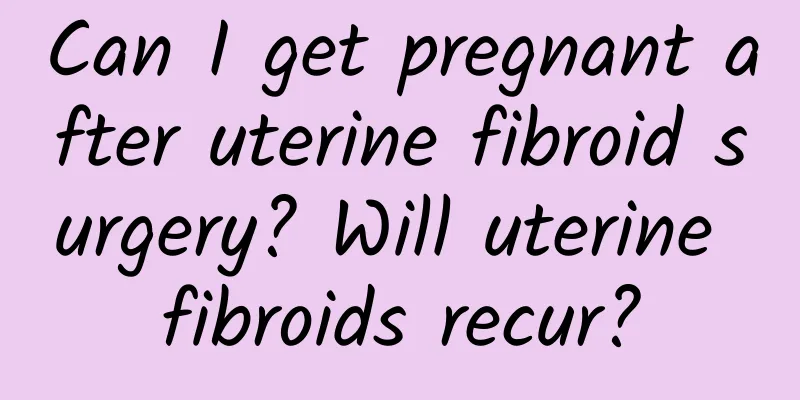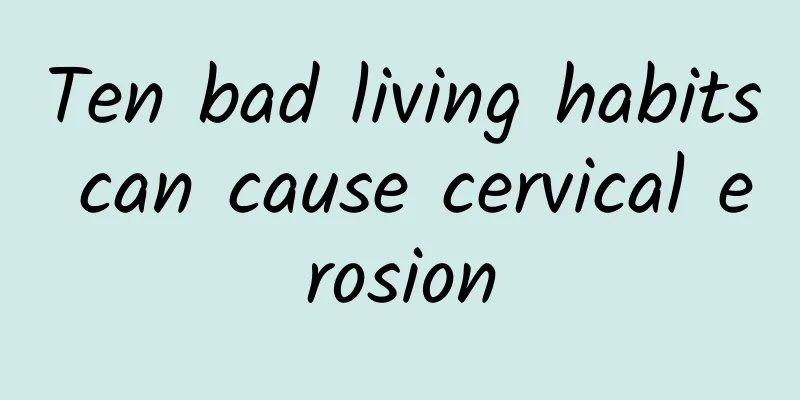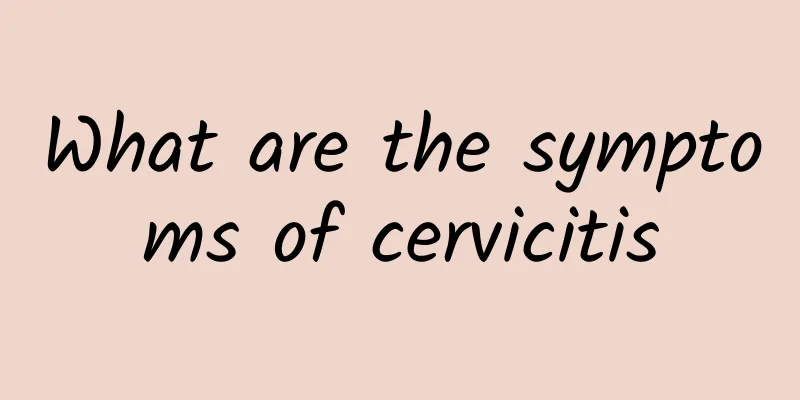Can I get pregnant after uterine fibroid surgery? Will uterine fibroids recur?

|
Uterine fibroids are a benign uterine tumor that is very common in women of childbearing age. The location of the growth of the fibroids, such as compression of the fallopian tubes, will affect the movement of sperm and eggs, leading to infertility. Once pregnant, the fibroids will grow rapidly with the growth of the uterus, especially after the second trimester of pregnancy, "degeneration", producing abdominal pain, fever and other symptoms. Uterine fibroids can sometimes easily lead to miscarriage and premature birth. Generally speaking, women with uterine fibroids can get pregnant with a diameter of less than 4 cm. However, before pregnancy, the uterine fibroids grow more than 4 cm in diameter, and the chances of pregnancy, degeneration, miscarriage, and premature birth increase; or the fibroids are less than 4 cm in diameter, but the growth location is not good, such as the uterine cavity, cervix or compression of the fallopian tubes affect infertility. It is best to perform surgery to remove the fibroids before pregnancy. All women of childbearing age with uterine fibroids must be examined by a gynecologist before deciding whether to get pregnant. For women who already have uterine fibroids, it is not impossible for them to recur. The recurrence rate is relatively low for patients with a single or small number of fibroids; if the number of fibroids is large, the recurrence rate is relatively high. Therefore, when the recurrence rate of fibroids is low, women who want to get pregnant are better off planning their childbirth. Some experts point out that "as for the issue of whether patients with uterine fibroids can have children, many people are concerned about it. It is best for patients to seize the time to get pregnant within 3 years. The recurrence rate is low and the success rate is naturally high." The special significance of the uterus to women determines that patients often have many concerns during surgery. But in fact, this is unnecessary. The current surgical plan can better consider the patient's feelings: remove the fibroids and retain the uterus, which is suitable for young, infertile patients; if the fibroids are too large and too many, the uterus has completed its "historical mission" of childbirth, and you can cut it off. In fact, hysterectomy will not affect the function of the female endocrine system and the harmony of sexual life. This is because even if the uterus is removed, the ovaries are still retained. The uterus is just an implanted reproductive organ, and the ovaries dominate the female endocrine. |
<<: What should I do if my menstrual flow is small after uterine fibroid surgery?
>>: What to eat after uterine fibroid surgery? Dietary conditioning methods for uterine fibroids
Recommend
Which hospital should I go to for treatment of cervical precancerous lesions?
Cervical precancerous lesions are the most common...
Typical symptoms of patients with atrophic vulvar leukoplakia at various stages
Atrophic vulvar leukoplakia is a common type of v...
What are the ways to cure dysmenorrhea?
Dysmenorrhea is a phenomenon that most women have...
Observation and nursing points for adenomyosis
Observation and nursing points for adenomyosis 1....
What causes ectopic pregnancy?
Ectopic pregnancy is an abnormal pregnancy proces...
Which is less harmful, medical abortion or surgical abortion?
Due to the openness of social relations nowadays,...
Symptoms and treatment of cervical hypertrophy
Cervical hypertrophy is usually caused by chronic...
What should we pay attention to when treating cervical hypertrophy?
What should we pay attention to when treating cer...
Love at first sight detox water! 4 simple steps
We all know that the first thing to do for detoxi...
Does severe cervical erosion require treatment?
Does severe cervical erosion require treatment? C...
Symptoms of intrauterine adhesions after cesarean section
Symptoms of intrauterine adhesion after cesarean ...
Is walking the right thing to do? 8 tips to help you lose weight easily
In order to stay healthy, lose weight, or relieve...
Can I exercise if I have a chocolate cyst?
People often say that life lies in exercise, whic...
What should women do if cervical erosion recurs repeatedly? Patients with recurrent cervical erosion try these treatments
Cervical erosion is a common gynecological diseas...
Is pelvic effusion normal?
Whether pelvic effusion and bleeding is normal de...









